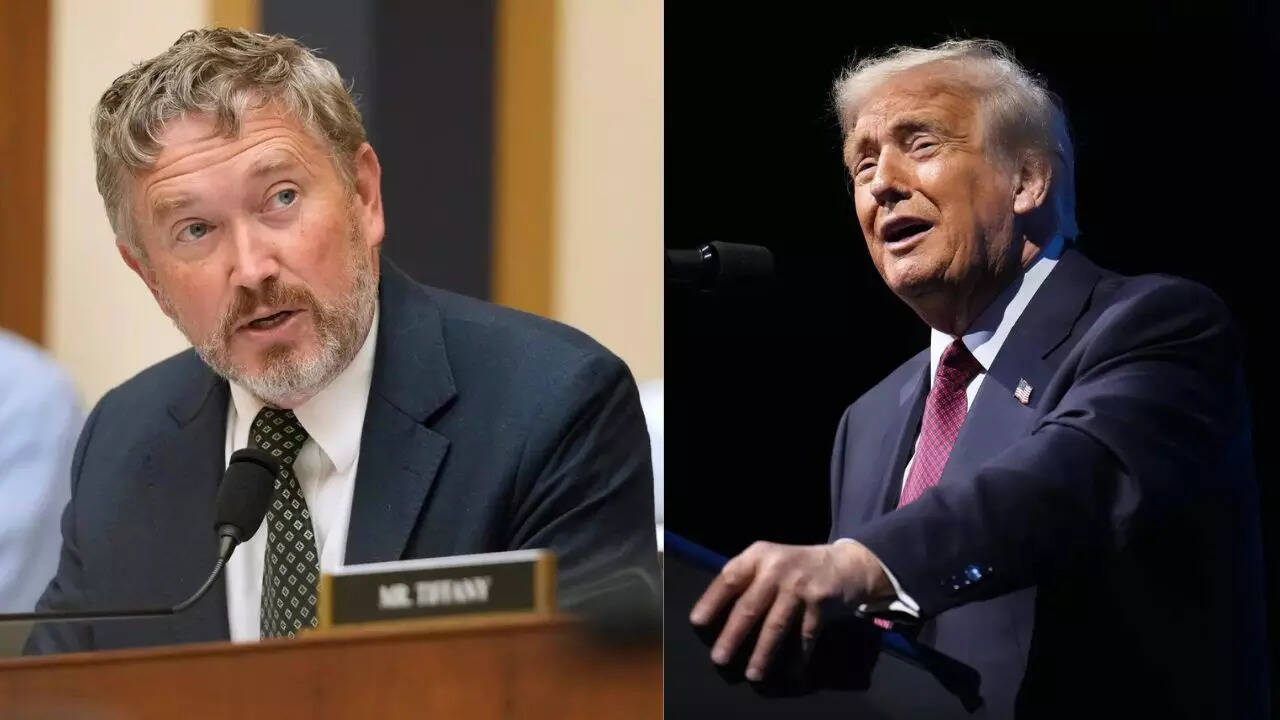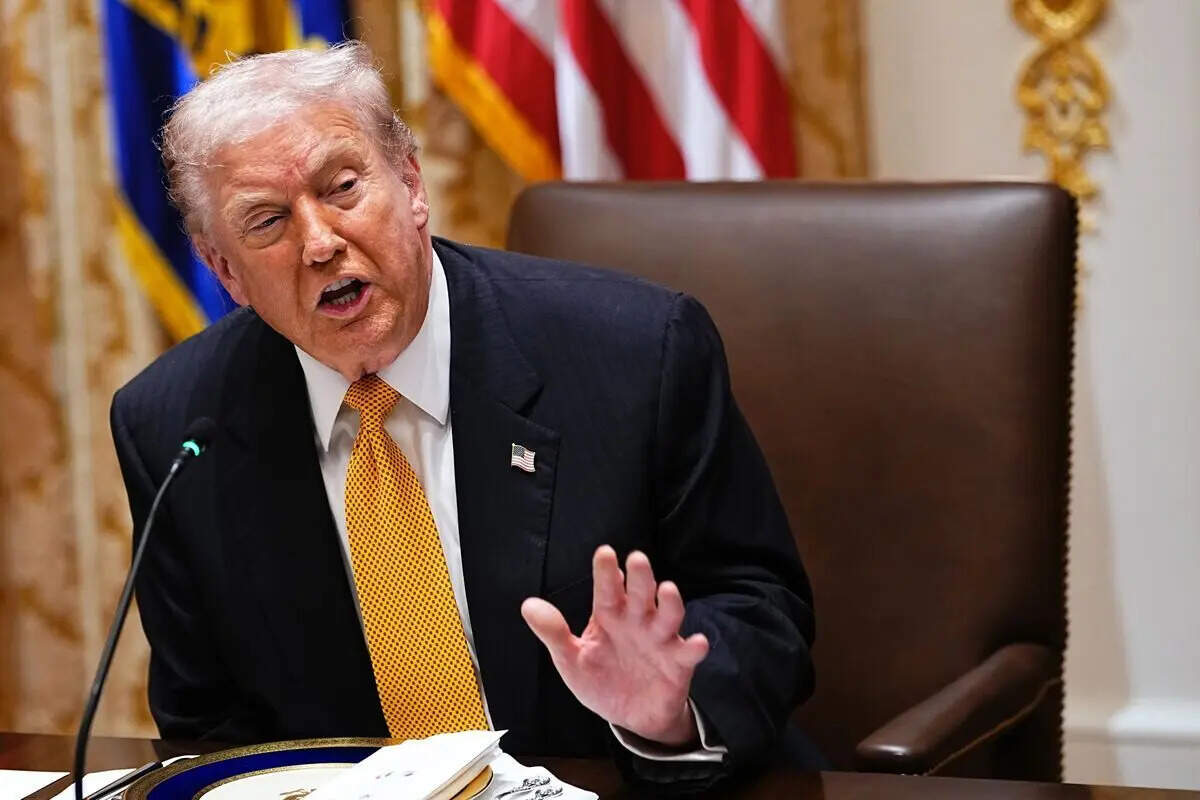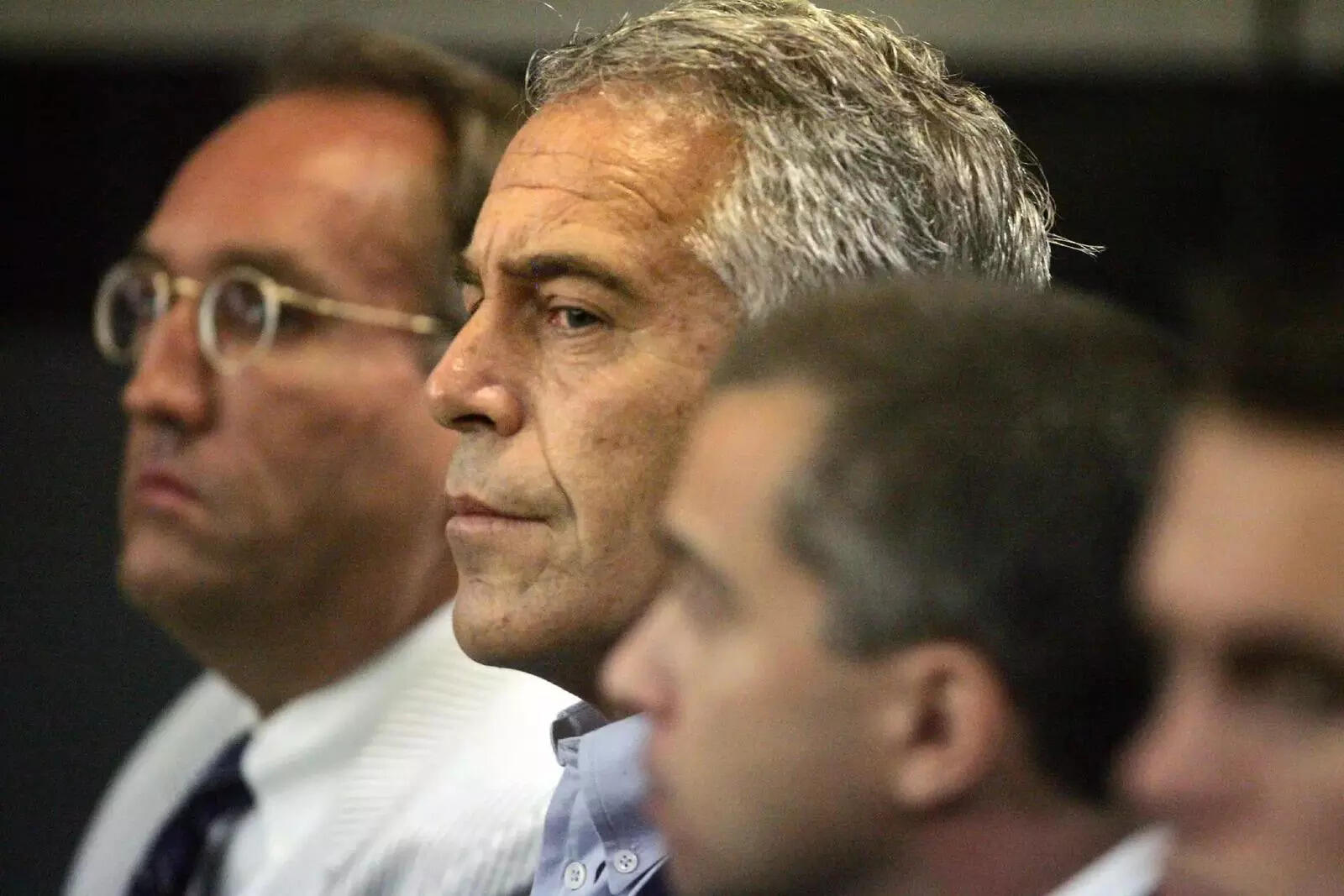Meet Thomas Massie: The Republican who is openly taking on Donald Trump

The Republican Party once tried to wash Donald Trump off like tear gas. In the days after 6 January 2021, senior Republicans queued up to say the quiet thing out loud. Kevin McCarthy, then House Minority Leader, admitted that the president “bears responsibility” for the mob that stormed Congress. Mitch McConnell went further and said there was “no question, none” that Trump was “practically and morally responsible” for provoking the events of that day and guilty of a “disgraceful dereliction of duty.” For a brief, trembling moment, it looked as if the party had decided to choose constitutional memory over cult loyalty. There was talk of a post-Trump Republican reboot, the donor class flirted with other names, and the commentariat rehearsed phrases like “turning the page” and “moving on.”Three years, one impeachment, and two Trump primary victories later, that righteous fury has mostly evaporated. Trump retook control of the party, the never-Trump Republicans either retired, lost primaries, or fell silent, and a long line of senators and governors who once hinted that “it is time for new leadership” found themselves back on stage, red cap in hand, mumbling that the base had spoken. Whatever the leadership might have wished on 7 January, rank-and-file Republican voters never actually left him.Inside that carefully reconstructed amnesia, Thomas Massie stands out as an oddity.He is not Liz Cheney, who converted resistance to Trump into a full-time vocation. He is not Mitt Romney, who gave a valedictory speech and left Washington shaking his head. Massie is something more awkward and therefore more interesting: a Republican who will accept Trump’s endorsement and still publicly defy him; a man who will pose for a Christmas card with his family holding assault rifles and then, in the next breath, launch a bureaucratic insurgency to force the president into a corner on one of the darkest scandals of the age.This is the story of how a solar-powered engineer from rural Kentucky became the Republican who took on Donald Trump from the right.
The man Trump tried to throw out

Thomas Massie (left) and Donald Trump / Photos: AP
Thomas Massie arrived in Congress in 2012 on the libertarian edge of the Tea Party wave. An MIT-trained engineer, he had made money on a tech invention, moved back home, and built the kind of off-grid, solar-powered house that makes lifestyle influencers on YouTube sound less committed than they think they are.From the start, Massie was a problem for leadership. He hated omnibus bills, continuing resolutions, and anything that looked like a blank cheque for the executive branch. He voted against foreign wars, against warrantless surveillance, against the steady fattening of the national security state. If there was a red button marked “no,” he pressed it so often that colleagues joked it must have an impression of his thumb.The defining early clash with Trump came in March 2020. As Covid ripped through the United States, Congress rushed through a two-trillion-dollar rescue package. Everyone wanted plausible deniability. The quickest way to get it was to wave the bill through on a voice vote, which would allow members to say they “supported relief” without ever having to defend a specific line item.Massie refused to play along. He insisted that a bill of that size should not pass without a recorded vote. He drove back to Washington, forced members to show up during a pandemic, and demanded that everyone either own their support or go on record as opposing it.Trump reacted like a man whose cinematic finale had been interrupted by an electrician switching the lights on. On social media, he called Massie a “third rate Grandstander,” urged Republicans to “throw Massie out of the Republican Party,” and accused him of risking lives “for publicity.” He wanted him primaried, shamed, erased.Massie survived. His deeply conservative district in northern Kentucky sent him back anyway. The attempted excommunication failed, and something important crystallised around his persona. He was now, in the eyes of both admirers and critics, the man who would walk into the chamber, ignore the party mood and the television cameras, and press the red button if he thought the state was spending money it did not have or grabbing power it did not deserve.That stubbornness would later bring him back into Trump’s orbit. After initially backing Ron DeSantis in the 2024 primaries, Massie eventually endorsed Trump, lured in part by Trump’s public promise to commute the sentence of Ross Ulbricht, the imprisoned creator of the Silk Road marketplace.For Massie, who sees criminal-justice overreach and the drug war as core civil liberties questions, this was not just a favour to the base, it was a test of principle: if you are serious about reform, prove it on a case that actually offends the security establishment.To MAGA world, that reconciliation looked like a neat narrative arc. The rebel had been brought back into the fold. To Massie, it was something more transactional: he had not converted to Trumpism so much as found a specific, leverageable overlap between his libertarian priorities and Trump’s appetite for spectacle.
The off-grid engineer in Trump’s Washington

US President Donald Trump (Photo: Agency)
Part of what makes Massie such an awkward fit in Trump’s Republican Party is that his weirdness pre-dates Trump.He is an engineer who treats politics like a badly designed machine. He sees institutions as systems with inputs and outputs, failure modes and unintended consequences. He is as likely to talk about load-bearing debt and feedback loops as he is to mention Ronald Reagan.Culturally, he is steeped in gun rights and rural identity. He pushes out family Christmas photos where everyone is holding a firearm, and he is an enthusiastic supporter of the Second Amendment. Ideologically, he is far closer to the old Ron Paul libertarians than to the television-friendly culture warriors who now dominate the House Republican conference. He hates surveillance programmes, opposes foreign interventions, and rants about the Federal Reserve.That combination makes him simultaneously a mascot and a migraine for leadership. He cannot be easily bribed with a subcommittee gavel and cannot be easily threatened by taking one away. His brand with his voters is precisely that he is willing to be the awkward “no” in a sea of party discipline.Which is why, when the Epstein story curved back into Washington in 2025, it was almost inevitable that Massie would end up at the centre of the storm.
Forcing the Epstein vote
By late 2025, the Epstein saga was less a story and more a pressure cooker. Years after Jeffrey Epstein died in a jail cell, thousands of pages of material from his estate were slowly being prised open by courts and congressional committees. Newly released emails and records pulled in an ever growing cast of presidents, bankers, academics and celebrities.For Trump’s base, Epstein had become the symbol that held together half a decade of suspicion about “the elites.” If there was ever going to be proof that the global establishment operated by a different set of rules, it would be here, in the flight logs, correspondence and investigative files surrounding a convicted sex offender with a Rolodex that ran from Palm Beach to Buckingham Palace.The expectation was simple: if anyone was going to blow the whole thing open, it would be Trump. He had campaigned on draining the swamp, promised to take on the “deep state,” and spent years hinting that he knew things about Epstein and his friends that would shock the world.In office, the tune changed. Trump’s Justice Department did not throw open the files. His allies began warning that there were sensitive national-security considerations. What had been sold as a crusade for transparency began to look more like a negotiated truce among people who frequented the same elite social circles.Massie decided to test how serious anyone really was about full disclosure.He co-sponsored the Epstein Files Transparency Act, a bill that would require the Justice Department to make public virtually all files, communications and investigative materials related to Epstein and his long-time associate Ghislaine Maxwell within a fixed deadline. The bill allowed redactions to protect victims and ongoing investigations, but explicitly ruled out the usual bureaucratic escape hatches of “embarrassment” or “reputational harm” as reasons to keep things hidden.Under normal circumstances, such a bill would never see daylight. House leadership, sensitive to both Trump and the donor class, would simply keep it bottled up in committee. No messy floor debate, no awkward roll call.Massie and Democrat Ro Khanna decided to bypass that blockade. They reached for one of the dustiest tools in the House rulebook: the discharge petition. If you can persuade 218 members of the House to sign a petition demanding a vote on a bill that leadership has buried, you can drag it, kicking and screaming, onto the floor.For weeks, the petition crawled. Members liked the sound of transparency in theory, but they could see the minefield ahead. Signing meant risking the wrath of the White House, the Speaker, and whichever powerful people might find their names or emails in the files.The turning point came when a newly sworn-in Democrat from Arizona walked off the ceremonial platform, added her name, and took the tally to 218. At that moment, the mechanism locked. No one could withdraw their signature. The bill was now guaranteed a vote, no matter how loudly leadership complained.In the background, the pressure campaign went into overdrive. Republican signatories were leaned on by party leaders and White House officials. One was summoned to the Situation Room to hear about the supposed security implications of forcing disclosure.Massie did not blink.Publicly, Trump railed against what he portrayed as a partisan effort. Privately, he and his team urged Republican members to avoid the bill. For all his talk about Epstein and Democrats, he clearly did not want a law on the books that would yank open the government’s entire Epstein archive on a fixed timetable.Massie’s explanation for that gap was blunt. He has repeatedly said he does not believe the files contain a hidden smoking gun implicating Trump in Epstein’s crimes. He insists his effort is not about incriminating the president. What he does believe is that Trump is running cover for his own social world, for friends and donors in Palm Beach and New York who crossed paths with Epstein and would rather not see every email and calendar entry held up for inspection.In other words, the issue is not criminal liability, it is embarrassment.
Taking on Trump from inside

A file photo from July 2008. Jeffrey Epstein in court in West Palm Beach, Florida (Photo: AP)
This is what makes Massie’s challenge so dangerous for Trump. He is not attacking from the centre, like Cheney, or from an institutional altar, like Romney. He is attacking from inside the original promise of Trumpism.If the whole point of sending Trump to Washington was to end the two-tiered justice system, then refusing to release the Epstein files looks less like strategic caution and more like outright betrayal. The people who most care about Epstein are the same people who still wear “drain the swamp” T-shirts to rallies. Telling them that the files must remain secret to protect unnamed interests is not going to land well.Massie has leaned into that contradiction. He points out that many Trump voters genuinely believed they were dispatching him to the capital to smash exactly this kind of elite omertà. Watching the White House try to kill a transparency bill on Epstein, he suggests, feels to them like discovering that the avenger in your favourite thriller has quietly joined the board of the villain’s company.The remarkable thing is that Massie has done all of this without doing the usual break-up ritual. He has not branded himself a “Never Trumper.” He has not gone on an endless cable-news tour. He still shares parts of Trump’s agenda, still cares about immigration, trade, and the culture war, still wants Ross Ulbricht freed.What he refuses to do is treat Trump as someone whose instincts automatically trump his own principles.
A rebel with leverage
In the short term, the Epstein Files Transparency Act remains a long shot. Even if it passes the House, it has to survive the Senate. Even if it clears both chambers, the president would be under enormous pressure to veto it. Yet, as with so many fights in Washington, the immediate legislative outcome is only part of the story. The other part is the signal it sends.Massie has just demonstrated that there is still a narrow procedural route to force uncomfortable issues onto the floor, even when both the Speaker and the President are opposed. He has shown that a Republican can survive the combined glare of leadership, the White House and the party media ecosystem, so long as he is willing to endure the noise and trusts his own voters more than the donor WhatsApp groups.He openly says that if he can get something done with the Speaker against him, the President against him, the Vice President against him and the FBI director against him, then he can use that same leverage on his older obsessions: cutting spending, shrinking the deficit, dragging the national debt back onto the agenda.In a party that has spent the past four years painstakingly teaching itself to forget what it said on 7 January 2021, Thomas Massie has chosen a different vocation. He is not particularly interested in rewriting the Trump chapter. He is interested in enforcing the terms that were written on the cover. If you promised to drain the swamp, he will hold you to that. If you swore there would be one law for everyone, he will send your allies a discharge petition and dare them to sign.In an age of very loud Republicans who ultimately fold at the hint of presidential disapproval, Massie has become something rarer and more unsettling: a quiet rebel who does his best work when the cameras are not looking, and who treats Donald Trump not as a king, but as one more politician to be brought to heel by the rules he once claimed to love.





